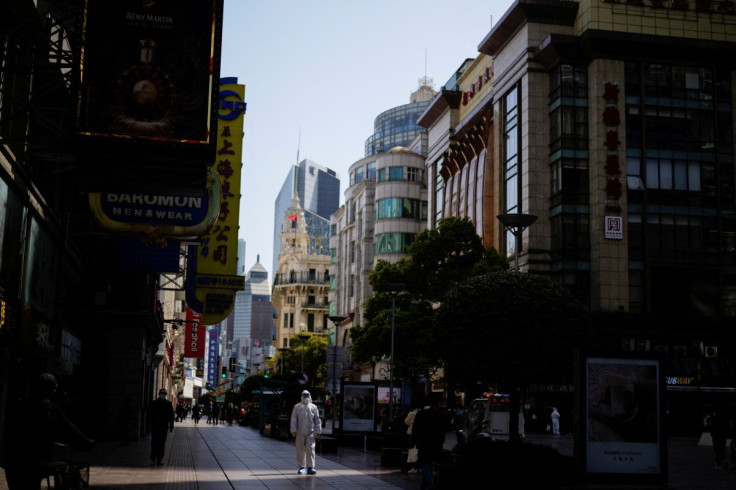Shanghai Detects New Infections After Five Days Of 'Zero COVID'

Shanghai reported new COVID-19 cases outside quarantined areas for the first time after five days of no infections, prompting stricter curbs in a district, but plans to end a prolonged city-wide lockdown on June 1 appeared to remain on track.
The commercial hub of 25 million found three new cases outside quarantined areas in one district on May 19. Infections also rose inside strictly controlled areas.
All three, from the same family, had taken three vaccine doses, and their infection was discovered during regular testing in Qingpu district, authorities said.
They have not left Xujing Town in the district for the past 14 days, but recently visited at least four places, including a supermarket, all of which are now closed off to the public and undergoing disinfection, authorities added.
The town's more than 200,000 people have since been re-tested and all results were negative, the authorities said.
"Our district will follow the precise prevention and control measures, do a good job in epidemic prevention and control and achieve dynamic clearing as soon as possible," Zhang Yan, deputy head of Qingpu district, told an online press conference.
City officials said parks would reopen in Shanghai suburbs from Sunday, while other parks could do so from June if they met certain conditions. However, any leisure facilities inside the parks would remain closed.
A plan to reopen four metro lines from Sunday also remains on track, the city government said.
Shanghai has been allowing more people to leave their homes in recent days, with many residential compounds issuing a limited number of passes to dwellers for brief walks or trips to the local supermarket. Still, most remained stuck indoors, relying on delivery apps and government rations.
The almost complete shutdown of Shanghai and strict measures in other cities are the result of a national "zero-COVID" policy to end all outbreaks as soon as they occur, in contrast with the resumption of normal life in the rest of the world.
Beijing, home to 22 million people, reported 62 new COVID infections for May 19, up from 55 a day earlier.
China's capital has struggled to end an outbreak since late April despite significant curbs on movement, with many Beijing residents working from home and a range of shops and venues closing.
But the daily caseload has remained in the dozens rather than exploding like in Shanghai and most other major cities around the world.
'NEW NORMAL'
The COVID situation in China has been broadly improving.
Analysts at Gravekal Dragonomics estimate fewer than 5% of Chinese cities are now reporting infections, down from a quarter in late March.
To keep the situation stable, many city authorities deploy local border controls, frequent mass testing and vigilantly monitor and isolate any new infections, including through individual building lockdowns.
"This new normal should allow manufacturing supply chains to gradually resume normal operation, but will continue to weigh on consumption, the services sector and small business," Gavekal analysts wrote in a note.
There have been signs of the economy responding positively to the looser controls in May after the April slump.
Daily container throughput at Shanghai ports has almost completely recovered to levels seen last year, while air cargo throughput and freight vehicle traffic have bounced to about two thirds of 2021 volumes.
While still down 21% from last year, retail car sales jumped 27% in the first half of May from the same period in April, data showed this week.
Policymakers have promised more fiscal and monetary stimulus to help the economy.
China cut its benchmark reference rate for mortgages by a bigger-than-expected margin at its May fixing on Friday, a second reduction this year, as Beijing is keen to revive credit demand to prop up the economy.
Premier Li Keqiang was quoted by state media this week as saying China has policy room to cope with the challenges.
© Copyright Thomson Reuters {{Year}}. All rights reserved.





















